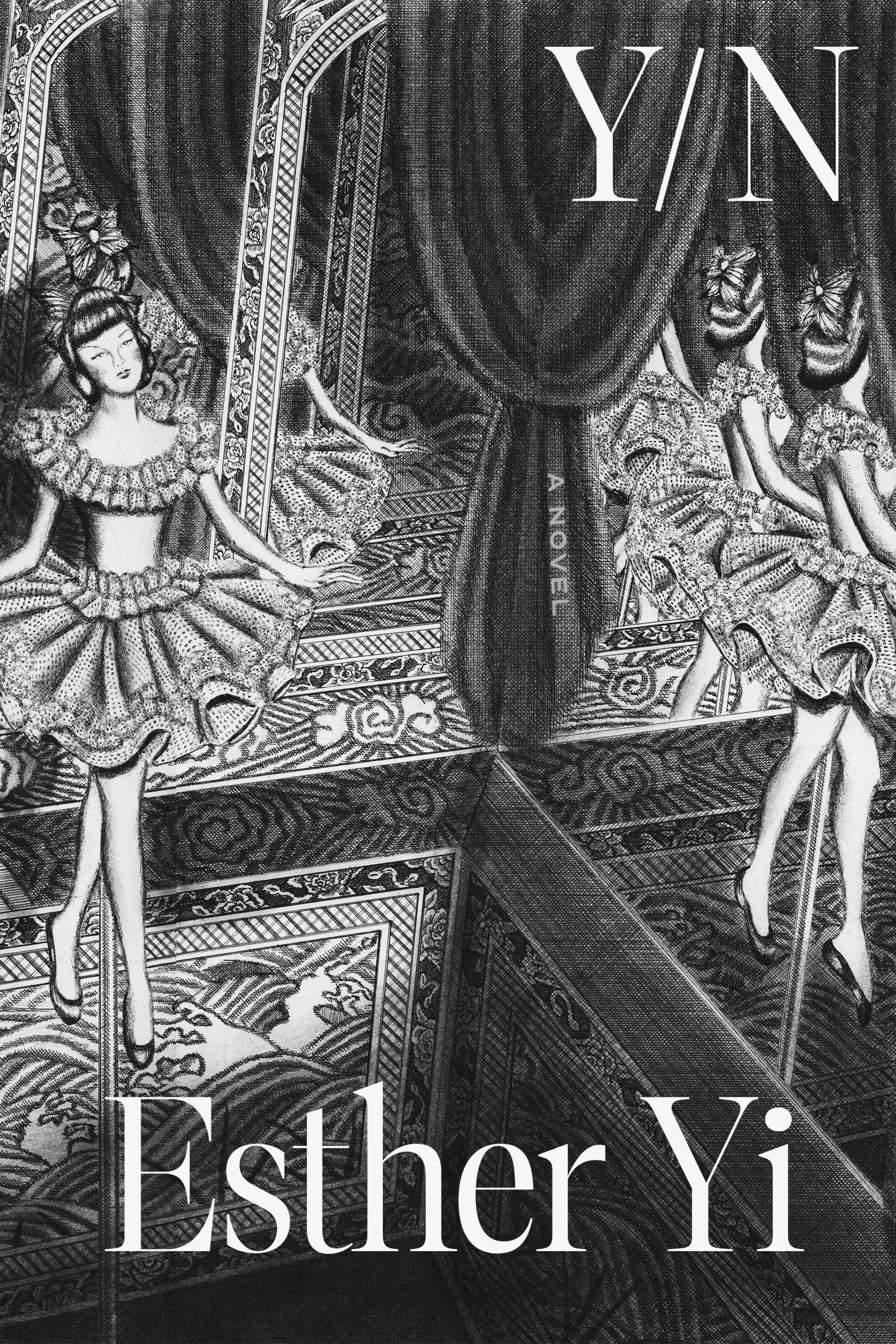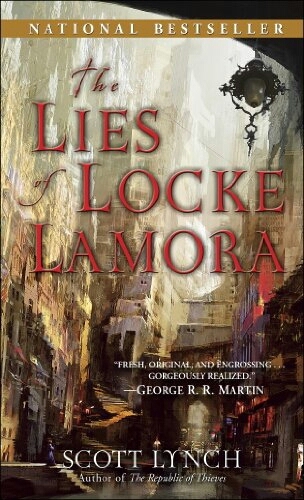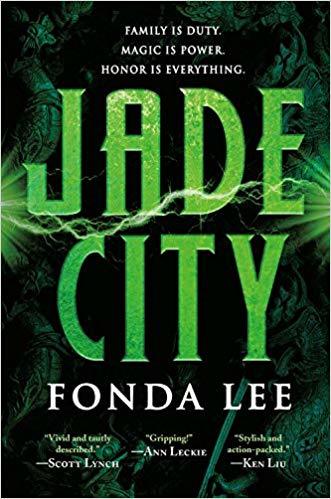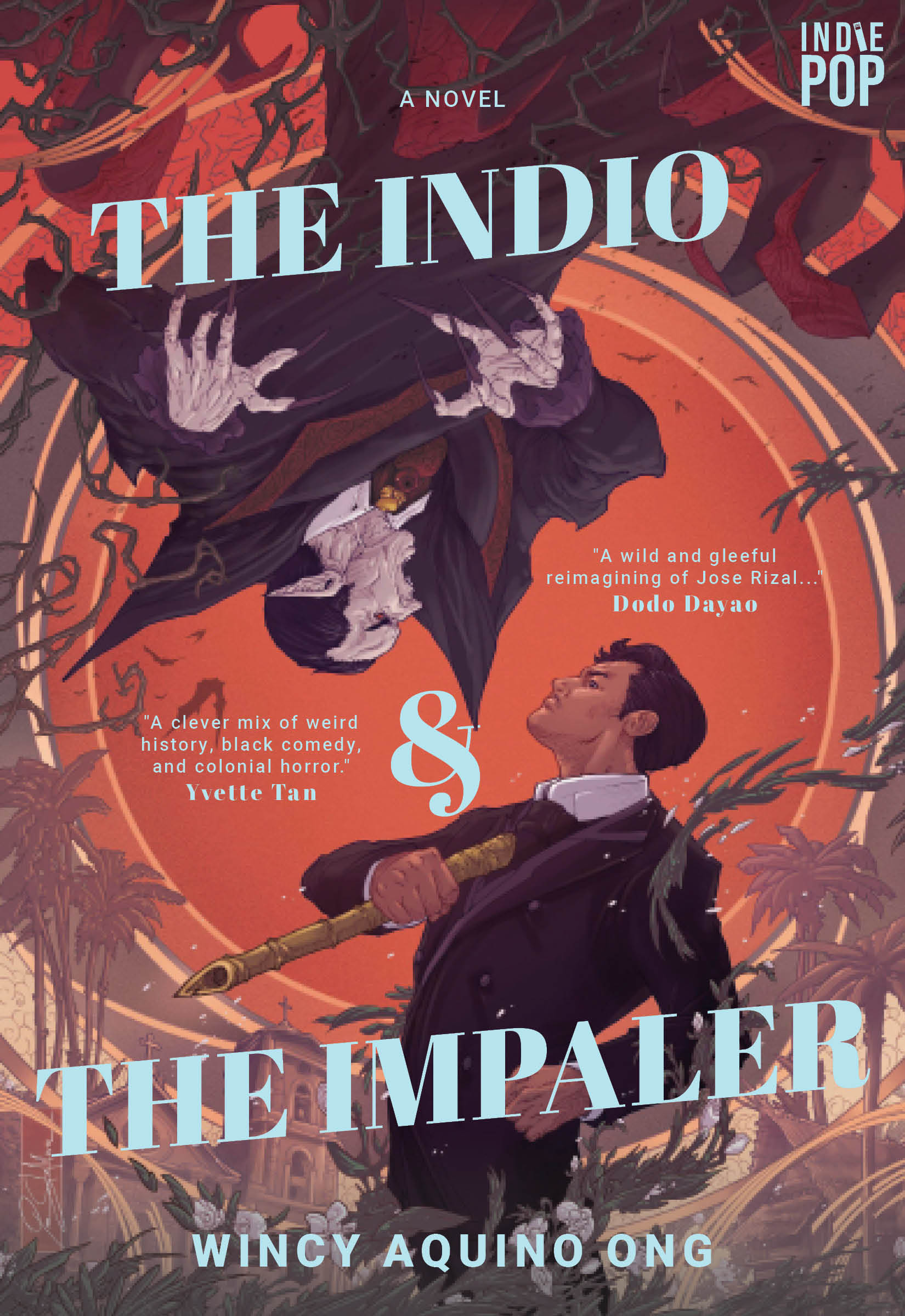kamreadsandrecs wrote a review...
So this didn’t feel quite as cohesive as the first volume, unfortunately. I know that nothing needs to necessarily “make sense” in that this is meant to show the minds of the characters breaking down in the face of everything they’re experiencing, but at the same time, there DOES need to be something holding everything together in a way that makes SOME kind of sense, and unfortunately that doesn’t exist here.
I think the lack of cohesion in the storytelling has to do with the creators choosing to continue with the narrative style of the first volume: telling part of the story from the point-of-view of one character, before shifting to another. It also doesn’t help that the first story in this volume is actually a flashback story to the past, which, though the ending of the first volume did set that up somewhat, still felt a bit jarring to start with. Now, that wouldn’t have been too much of a problem if that had been the only weird shift, but then the POV switches to that of a very unusual character for a little bit, and that chapter/issue doesn’t even consistently stay IN that character’s POV. So it really feels like the story is meandering in ways that don’t do the story many favors.
Given that the story doesn’t seem to come together well, it should come as no surprise that the ending doesn’t make much sense either. One gets the sense that the creators had a pretty decent IDEA of how to wrap this story up, but when it finally came time to execute it, they just got lost. So the ending feels a little tacked on, instead of something that emerges from the rest of the story in a way that makes sense.
Despite all of that, though, the art is still incredible. In fact, I believe the only thing really holding the story together is the artwork; without it, the story would be an even bigger mess than it already is - which is unfortunate, because if the story had matched the quality of the art, then this volume really would have been something spectacular.
Overall, this was not the best continuation of the story after the first volume. The first volume’s weaknesses were on much clearer display in this volume, not least because the narrative doesn’t come together in a way that makes sense, despite allowances being made for the genre. The art was the true hero here, holding whatever was there of the story and basically carrying the entire volume through to the sadly disappointing end. If more volumes follow after this one, I sure hope the creators get a better grasp of the story they want to tell, because good art can only carry a graphic novel so far.
kamreadsandrecs commented on a post
i feel stupid reading this book. i don’t understand anything, is this normal? the grammar rules seems different, and i am having to look up dictionary 5-10 words per pages 😔
kamreadsandrecs commented on a post
kamreadsandrecs commented on kamreadsandrecs's review of About a Place in the Kinki Region
So this was QUITE the ride! Not a lot of horror novels make me go “Nope! Not reading this after dark!” within the first few pages, but when a book does that, I KNOW it’s going to be fun, and this DEFINITELY was.
If one has ever experienced the feeling of going down a Wikipedia or just general internet rabbit hole trying to track down information on some specific thing one saw on a message board or on Reddit and staying up all night to do it, then reading this book will feel VERY familiar. The story being told in fragments of interconnected articles, message board posts, and interview transcripts, interspersed with some narrative from the “author”, entices the reader forward, creating narrative propulsion even with the lack of a “traditional” plot. The inclusion of “actual source material” like drawings, photographs, and screenshots from online livestreams was a very nifty touch, and helped up the creepiness of the story.
There’s also a clear absence of a protagonist in this story, which some readers have claimed detracts from the cohesion of the overall narrative. While it’s true that the book’s fragmented structure can be a bit hard to come to grips with without an obvious central figure around which to organize the story, in my opinion this just places the reader themself as the central figure. From the outset the book is framed as a request for help, and the book is presented as a collection of evidence the reader must put together to find answers. When viewed from that perspective, the reader is not just a distant observer, they are made into a direct participant in the story itself - a realization that is crucial to the novel’s ending.
Speaking of the ending, I found that it wasn’t entirely satisfactory. There was a certain lack of impact in the way this novel wrapped up, despite everything else about it being very well-executed. It made me think of the ending to Bob Ong’s Ang Mga Kaibigan ni Mama Susan, which is in a somewhat-similar genre as About a Place in the Kinki Region (”found” material relating to a creepy event or events), but the ending of Ong’s book felt more impactful than the ending for this novel.
Overall, this was a really spooky read, especially for readers who enjoy found-footage horror films, and/or like to solve mysteries on their own. The blend of online and offline urban legends, as well as folk horror, make for a powerful and terrifying backbone around which the entire story is built, accompanied by a narrative that, though fragmented, encourages the reader to keep reading more and more by putting them in the driver’s seat of solving this mystery once and for all. Though the ending is not as strong as I wish it was, it fortunately doesn’t detract from the overall experience of reading this book.
kamreadsandrecs commented on a post
I’ve been seeing posts from readers who picked up this book expecting a secondary world fantasy inspired by older historic references, and then being surprised to see cars and guns and telephones. As someone who first read this maybe a year after it first released, the best way to come to grips with this setting is, first: understand that this is a subgenre of fantasy called urban fantasy, which used to be super-popular in the 2010s but now has faded somewhat into the background. The basic premise is to take a setting much like the one we live in with all the technological and scientific advancements we have, and fit magic into it. Sometimes that magic is overtly used and everyone knows it exists (ex. Jade City and the rest of the trilogy), or it can be kept secret to varying degrees (ex. Rivers of London series by Ben Aaronovitch). It’s a pretty wide subgenre with a long history and presence in publishing, and is definitely worth exploring.
The second thing you might need to know about the setting of Jade City is what went into its DNA. In this Reddit AMA (https://www.reddit.com/r/Fantasy/comments/7g4voa/im_fonda_lee_author_of_jade_city_ask_me_anything/) Fonda Lee goes into the inspiration for Jade City, and among a great many other things like The Godfather, she mentions the Hong Kong wuxia and gangster films of the late 80s-early 90s. These are, in my opinion, your best options for building a clear vision of Kekon and to some degree the families that inhabit it. As a starting point, I highly recommend Ringo Lam’s The Killer (1989); there is a scene of a young Chow-Yun Fat smoking under dim lights that REALLY echoes a very early scene with Hilo in it.
Post from the Jade City (The Green Bone Saga, #1) forum
I’ve been seeing posts from readers who picked up this book expecting a secondary world fantasy inspired by older historic references, and then being surprised to see cars and guns and telephones. As someone who first read this maybe a year after it first released, the best way to come to grips with this setting is, first: understand that this is a subgenre of fantasy called urban fantasy, which used to be super-popular in the 2010s but now has faded somewhat into the background. The basic premise is to take a setting much like the one we live in with all the technological and scientific advancements we have, and fit magic into it. Sometimes that magic is overtly used and everyone knows it exists (ex. Jade City and the rest of the trilogy), or it can be kept secret to varying degrees (ex. Rivers of London series by Ben Aaronovitch). It’s a pretty wide subgenre with a long history and presence in publishing, and is definitely worth exploring.
The second thing you might need to know about the setting of Jade City is what went into its DNA. In this Reddit AMA (https://www.reddit.com/r/Fantasy/comments/7g4voa/im_fonda_lee_author_of_jade_city_ask_me_anything/) Fonda Lee goes into the inspiration for Jade City, and among a great many other things like The Godfather, she mentions the Hong Kong wuxia and gangster films of the late 80s-early 90s. These are, in my opinion, your best options for building a clear vision of Kekon and to some degree the families that inhabit it. As a starting point, I highly recommend Ringo Lam’s The Killer (1989); there is a scene of a young Chow-Yun Fat smoking under dim lights that REALLY echoes a very early scene with Hilo in it.
kamreadsandrecs commented on a post
kamreadsandrecs finished a book
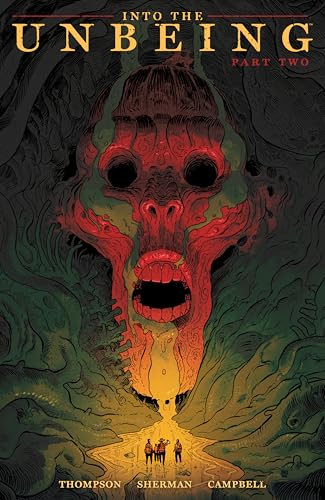
Into the Unbeing Volume 2
Zac Thompson
kamreadsandrecs started reading...

Into the Unbeing Volume 2
Zac Thompson
kamreadsandrecs wrote a review...
So this was QUITE the ride! Not a lot of horror novels make me go “Nope! Not reading this after dark!” within the first few pages, but when a book does that, I KNOW it’s going to be fun, and this DEFINITELY was.
If one has ever experienced the feeling of going down a Wikipedia or just general internet rabbit hole trying to track down information on some specific thing one saw on a message board or on Reddit and staying up all night to do it, then reading this book will feel VERY familiar. The story being told in fragments of interconnected articles, message board posts, and interview transcripts, interspersed with some narrative from the “author”, entices the reader forward, creating narrative propulsion even with the lack of a “traditional” plot. The inclusion of “actual source material” like drawings, photographs, and screenshots from online livestreams was a very nifty touch, and helped up the creepiness of the story.
There’s also a clear absence of a protagonist in this story, which some readers have claimed detracts from the cohesion of the overall narrative. While it’s true that the book’s fragmented structure can be a bit hard to come to grips with without an obvious central figure around which to organize the story, in my opinion this just places the reader themself as the central figure. From the outset the book is framed as a request for help, and the book is presented as a collection of evidence the reader must put together to find answers. When viewed from that perspective, the reader is not just a distant observer, they are made into a direct participant in the story itself - a realization that is crucial to the novel’s ending.
Speaking of the ending, I found that it wasn’t entirely satisfactory. There was a certain lack of impact in the way this novel wrapped up, despite everything else about it being very well-executed. It made me think of the ending to Bob Ong’s Ang Mga Kaibigan ni Mama Susan, which is in a somewhat-similar genre as About a Place in the Kinki Region (”found” material relating to a creepy event or events), but the ending of Ong’s book felt more impactful than the ending for this novel.
Overall, this was a really spooky read, especially for readers who enjoy found-footage horror films, and/or like to solve mysteries on their own. The blend of online and offline urban legends, as well as folk horror, make for a powerful and terrifying backbone around which the entire story is built, accompanied by a narrative that, though fragmented, encourages the reader to keep reading more and more by putting them in the driver’s seat of solving this mystery once and for all. Though the ending is not as strong as I wish it was, it fortunately doesn’t detract from the overall experience of reading this book.
kamreadsandrecs finished a book
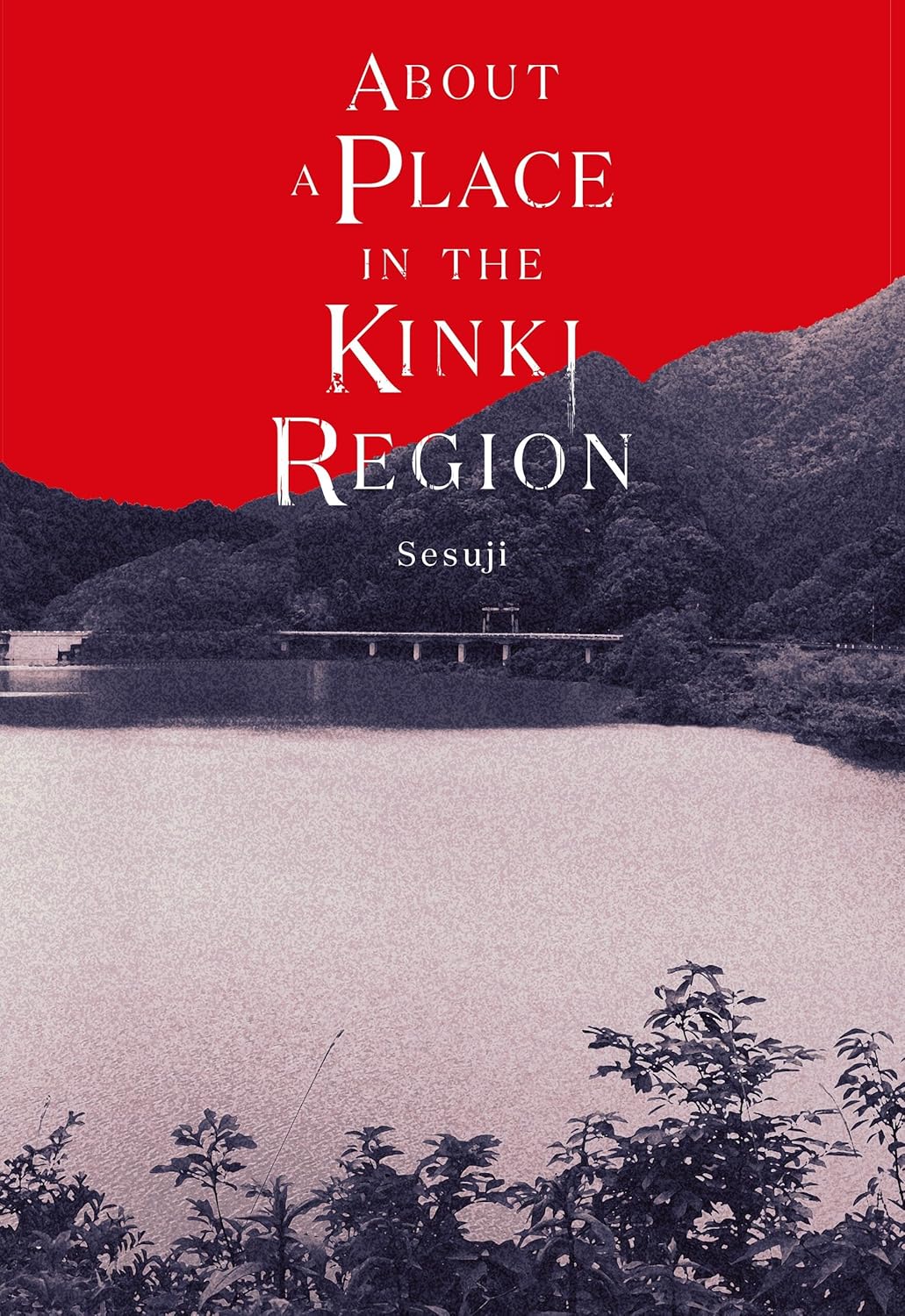
About a Place in the Kinki Region
Sesuji Sesuji
kamreadsandrecs commented on a post
Post from the About a Place in the Kinki Region forum
Reading this in e-format, but the digital edition’s not included in the database yet.
kamreadsandrecs started reading...

About a Place in the Kinki Region
Sesuji Sesuji
kamreadsandrecs wrote a review...
So this was a really interesting read. I keep comparing this to Annihilation, which given the focus on environmental collapse and a mutating environment, seems appropriate, plus this book also seems to have borrowed from Jeff VanderMeer’s work in the form off the protagonists: four women working for a mysterious organization, studying a hostile environment. It doesn’t quite have the same level of complexity and nuance as VanderMeer’s novel, but that might just be down to the differences in medium.
There’s also some overlap in the themes explored. Like Annihilation, this book is set in a world in which climate change has led to global collapse, with humanity still trying to fight back against the inevitable end. It also tackles the idea of the Earth itself fighting back against humanity like a living organism in its own right. Like Area X, the interior of the titular Unbeing is a constantly changing, mutating thing that seems to have a mind of its own. The art does a lot of the heavy lifting here, blurring the lines between what is organic and inorganic, biological versus geographical, to a degree that can be a mite uncomfortable at times.
I also liked how the narrative was partitioned out into four distinct streams, with each member of the team getting their own moment to tell their story. Blurring the lines between sanity and madness is an aspect of cosmic horror that doesn’t always translate very well, especially in a visual medium, but by telling the narrative from four separate points-of-view, this book manages to capture that feel. The art also definitely helps, along with the way the panels are arranged.
Sadly, while the art and panelling are certainly the highlights of this book, the characterization doesn’t quite hit the mark. The protagonists don’t feel as fleshed-out as I’d like, with a lot of their development coming mostly from exposition in a “tell, not show” way. This also interferes with the narrative; one would think that there would be a lot less exposition in a visual medium of storytelling, but it is, apparently, possible to over-narrate in a comic format.
Overall, this was not a bad read. The art is definitely the highlight, and is was drew me to this book in the first place. The concept is also very strong, sharing a lot of parallels with Jeff VanderMeer’s Annihilation, sharing the same themes though approaching them differently due to the difference in medium. The art and the panelling both go a very long way towards making the story interesting, even if sometimes certain choices regarding the latter can make reading things a bit confusing. The characterization could also be better, and the reliance on exposition does somewhat unflattering things to the pace that not even the art cannot always salvage.
kamreadsandrecs finished a book
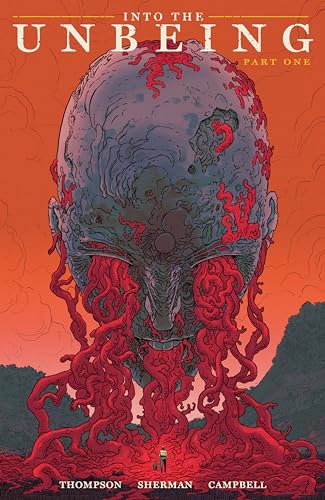
Into the Unbeing Volume 1
Zac Thompson




